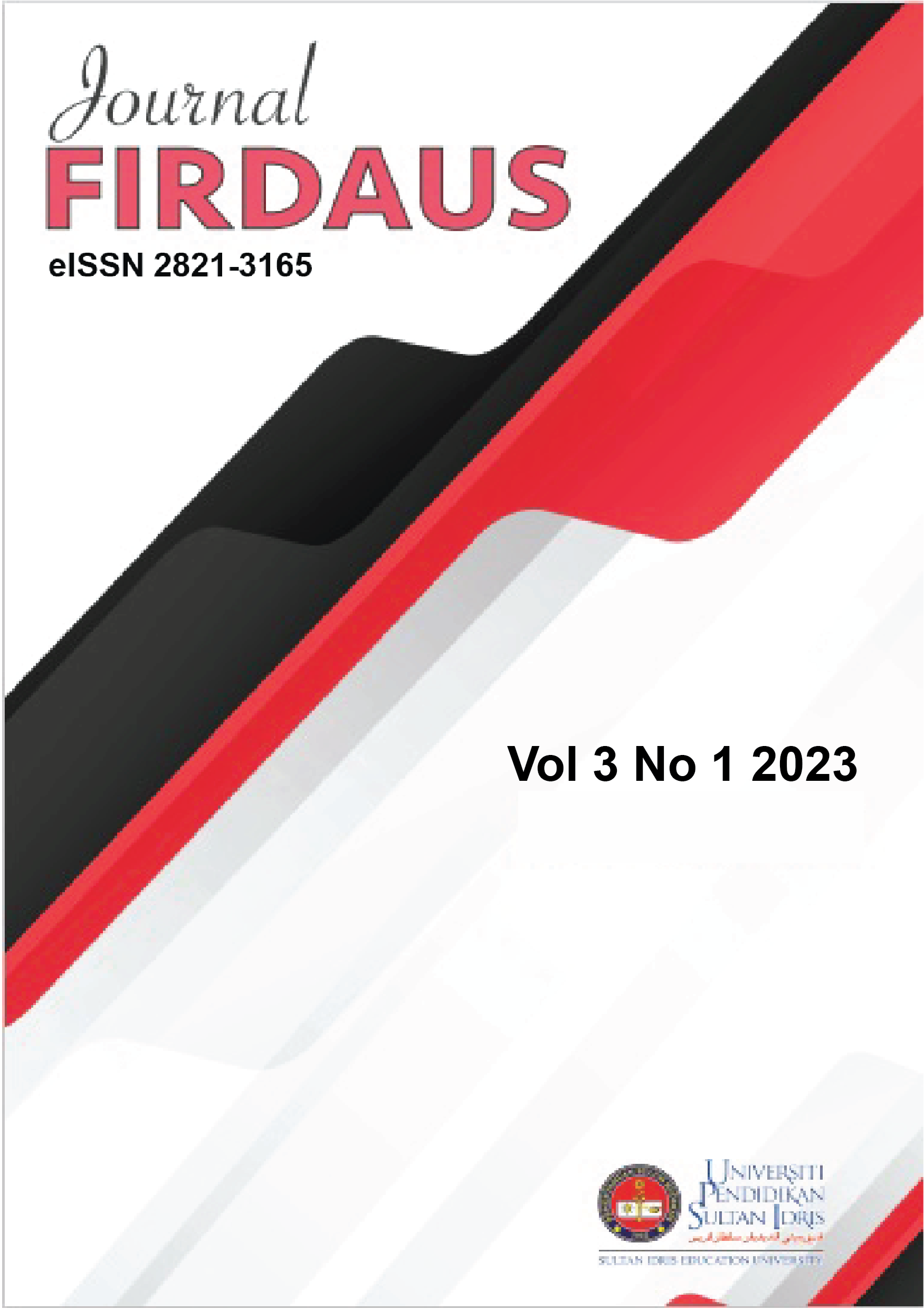Transformation of Artificial intelligence in Islamic Edu with Ulul Albab Value (Global Challenge Perespective)
DOI:
https://doi.org/10.37134/firdaus.vol3.1.1.2023%20Keywords:
Artificial intelligence, Ulul Albab, Islamic EducationAbstract
The face of world industrialization is changing with the Industrial Revolution 4.0. Old-style large companies are increasingly being threatened by new, more innovative companies. Likewise, in the innovation of the Islamic Education system, the need for new skills such as artificial intelligence, data analytics, machine learning, and other digital technologies is increasingly evident. Likewise soft skills related to complex problem solving, critical thinking, collaboration and communication are also increasingly needed. The existence of the face of the world's industrialization has created an impact that has caused panic and anxiety among the people. In the context of Islamic Education, Artificial intelligence can explain the interpretation of verses as well as hadiths, can also recite verses from the Koran and be used in writing sermons at mosques. This is a dilemma in the world of Islamic education, for example when Artificial intelligence is used to revive or maintain the memories of people who have died. One of the best management elements of this phenomenon can be started from the reconstruction of artificial intelligence for Islamic education with the Ulul Albab value approach.
Downloads
References
Abu Dawud, al-Hafidz al-Muhammad al-Muttaqien Abu Dawud Sulayman ibn al-As’ats alSijistani al-Azdy, Sunan Abu Dawud, Mesir: Dar al-Mishriyyah al-Labaniyyah, 1988M/ 1408 1.
Cimatti, B. (2016). Definition, development, assessment of soft skills and their role for the quality of organizations and enterprises. International Journal for quality research, 10(1), pp 97.
Noah, J.B., & Abdul Azizm A. (2020) A Systematic review on soft skills development among university graduates. EDUCATUM Journal of Social Science, 6 (1), pp 53https://doi.org/10.37134/ejoss.vol6.1.6.2020
Pachauri, D., & Yadav, A. (2014) Importance of soft skills in teacher education programme. International journal of educational research and technology, 5(1), pp 22-25.
Jamaludin Badusah (ed). (2006). Model Pembangunan Kemahiran Insaniah (Soft Skills) untuk Institusi Pengajian Tinggi Malaysia. Serdang: Penerbit Universiti Putra Malaysia 157
Fahimirad, M., Nair, P. K., Kotamjani, S. S., Mahdinezhad, M., & Feng, J. B. (2019) Integration and Development of Employability Skills into Malaysian Higher Education Context: Review of the Literature. International Journal of Higher Education, 8(6), pp 26-35.
Tsaoussi, A. I. (2020) Using soft skills courses to inspire law teachers: a new methodology for a more humanistic legal education. The Law Teacher, 54(1), pp 1-30.
Pitman, T., & Broomhall, S. (2009) Australian universities, generic skills and lifelong learning. International Journal of Lifelong Education, 28(4), pp 439–458.
Brown, Bettina Lankard (2002). Generic Skills in Career and Technical Education” Myths and Realities. ED472363. http://www.ericfacility.net/extra/search2/view.html
Grapragasem, S., Krishnan, A., & Mansor, A. N. (2014) Current Trends in Malaysian Higher Education and the Effect on Education Policy and Practice: An Overview. International Journal of Higher Education, 3(1), pp 85-93.
Zain, N. M., Aspah, V., Abdullah, N., & Ebrahimi, M. (2017) Challenges and evolution of higher education in Malaysia. UMRAN-International Journal of Islamic and Civilizational Studies, pp 4(1-1).
Da Wan, C., Sirat, M., & Razak, D. A. (2018) Education in Malaysia towards a developed nation.
Pachauri, D., & Yadav, A. (2014) Importance of soft skills in teacher education programme. International journal of educational research and technology, 5(1), pp 22-25.
Zakaria, S. K., & Daud, M. N. (2021) Penjanaan Kemahiran Insaniah Melalui Gaya Pembelajaran dan Kecerdasan Pelbagai. Jurnal Dunia Pendidikan, 3(4), pp 65-76. http://myjms.mohe.gov..my/index.php/jdpd
Malaysia, K. P. T. (2006). Modul pembangunan kemahiran insaniah (soft skills) untuk institusi pengajian tinggi Malaysia. Serdang: Universiti Putra Malaysia, 1, pp 52.
Tang, K. N. (2019) Beyond Employability: Embedding Soft Skills in Higher Education. Turkish Online Journal of Educational Technology-TOJET, 18(2), pp 1-9.158
Okolie, U. C., Nwosu, H. E., & Mlanga, S. (2019) Graduate employability: How the higher education institutions can meet the demand of the labour market. Higher education, skills and work-based learning.
Patacsil, F. F., & Tablatin, C. L. S. (2017) Exploring the importance of soft and hard skills as perceived by IT internship students and industry: A gap analysis. Journal of Technology and Science Education, 7(3), pp 347-368.
Richey R. & Klein, J. (2007) Design and development research: Methods, strategies and issues. Mahwah, New Jersey: Lawrence Erlbaum Associates, Publishers
Downloads
Published
How to Cite
Issue
Section
License
Copyright (c) 2023 Dian Cita Sari, Abdul Halim Ali, Makmur Harun, Nek Mah Batre, Mohd Shukri Hanafi, Zeti Yusmira Jaludin, Cittra Juniarni, Darodjat, Indria Nur, Ridha Harwan, Iwan Kuswandi

This work is licensed under a Creative Commons Attribution-NonCommercial-ShareAlike 4.0 International License.





